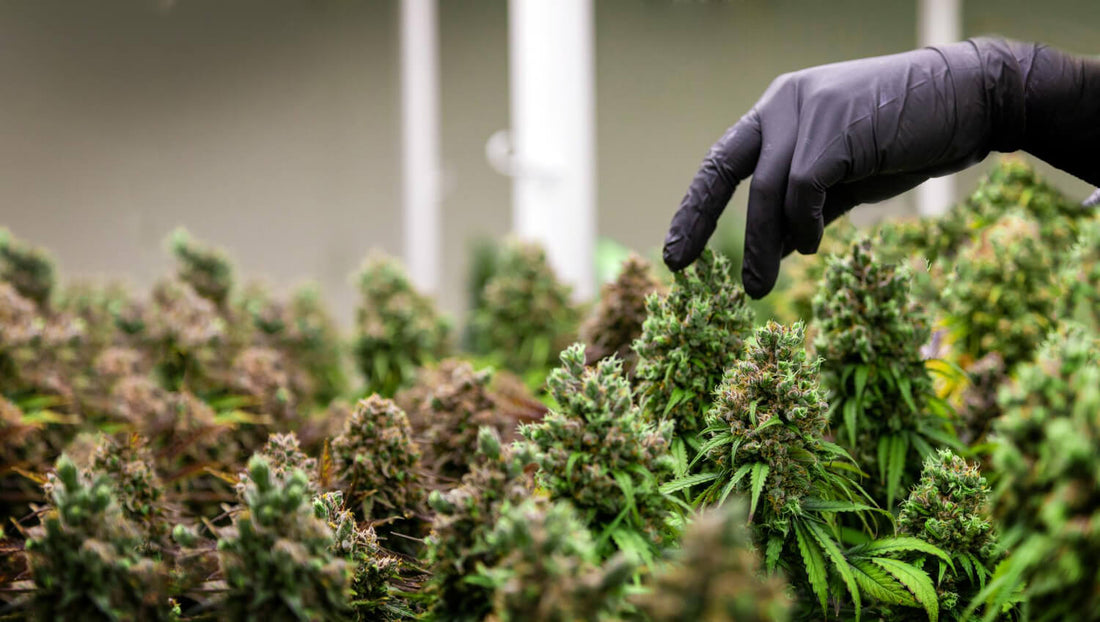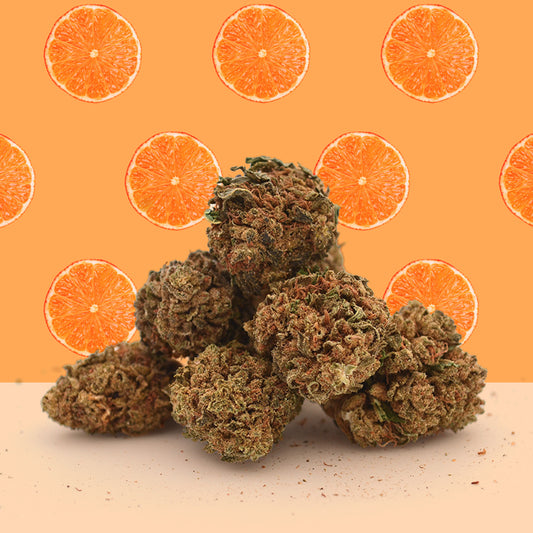Consuming organic is trendy, easy and reassuring these days. It's only natural that organic cannabidiol products have also hit the market, but what's really going on behind this lucrative business? Here's how I explain organic CBD and how it's grown.
What is organic farming?
Labeled on products with a light-green AB logo, organic farming is a form of cultivation initially described as: " a production method that combines a high level of biodiversity with environmental practices aimed at preserving natural resources through, among other things, the abandonment of synthetic chemicals and GMOs". Not just limited to plants, organic farming has developed over the last few decades, and now includes market gardening, field crops, animal husbandry, viticulture and more.
With nature at the heart of its concerns and the desire to work more intelligently, the organic protocol doesn't just apply to farming and livestock breeding. Indeed, for products to be certified, the processing and marketing stages must also respect nature and the environment. To ensure this, organic farming specifications have been drawn up.
Specifications for organic CBD cultivation
As I explained in the section just above, there are specifications to ensure that products meet expectations. The same applies to the organic cultivation of CBD. The organic cultivation of hemp is highly regulated, notably by two European texts that set out the conditions for organic cultivation (EC regulation 834/2007, EC regulation 889/2008). In addition, a reading guide developed by the French Ministry of Agriculture and Food (RCE reading guide).
Organic means, without apology, excluding the use of GMOs and prohibiting the use of synthetic chemicals. Organic farming is based on the following intrinsic pillars:
- Respect natural balances by favoring organic inputs. This improves fertility and enriches the soil.
- Pay attention to conversion. A crop is not organic immediately. It takes time for the soil to "clean itself up" and regain its natural balance.
- Regular checks to certify that production meets organic farming standards.
- The AB label and logo guarantee consumers that finished products are 100% organic and/or contain at least 5% organic agricultural products in the case of processed products.
How does CBD cultivation fit in with environmental protection?
One of the key points of the specifications for organic hemp cultivation is the ban on the use of chemicals. Unnatural pesticides and fertilizers are totally banned. However, natural pesticides and fertilizers are authorized. The use of biological agents is also recommended. OMGs are also totally banned. We can therefore imagine that the use of natural products avoids massive destruction of the environment and is less aggressive for the ecosystem.
Farmers are also required to rotate crops to help renew the soil, which means they can't intensively grow just one type of plant. Why make this choice? Simply because each type of plant uses specific nutrients and, in exchange, returns fertilizing elements to the soil. So, by varying the crops we grow, we can both make good use of the fertilizers provided by the previous crop and boost the soil's natural richness.
Discover our 100% organic CBD oils
At Mama Kana, we certify our range ofCBD oils to be produced with organically grown hemp. Available in 5, 10, 15, 20 and 30% CBD, our oils are ready-to-use and can be used as is or added to the preparations of your choice.


![Trim CBD 🧉 [Greenhouse]](http://mamakana.com/cdn/shop/files/TrimCBD_1_62bc19c6-8b2f-416e-aa10-70da357ae351.jpg?v=1720017738&width=533)



![Banana Cream CBG 🍌 [Greenhouse]](http://mamakana.com/cdn/shop/files/banana.jpg?v=1683038126&width=533)



